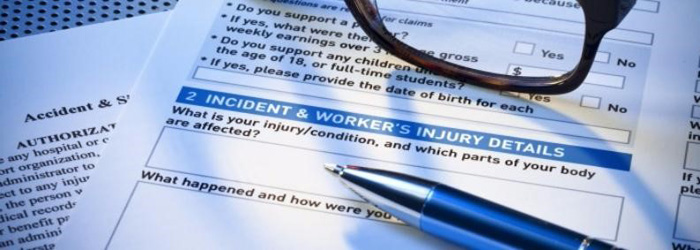
Providing effective and successful vocational and job search services in Maryland workers’ compensation claims can be a win-win for both claimants and employers. Whether voluntarily agreed upon by the parties to a claim or ordered by the Workers’ Compensation Commission (“WCC”), vocational rehabilitation (or voc rehab, as it is commonly known) can return claimants to work more quickly and effectively while mitigating employers and insurers’ ongoing responsibility for temporary total disability benefits. From a defense perspective, there are several key factors to consider when initiating, overseeing, and concluding voc rehab in Maryland workers’ compensation claims, which are summarized below:
Get Voc Rehab Started on the Right Foot.
While vocational rehabilitation benefits in Maryland workers’ compensation are governed generally under Sections 9-670 et seq. of the Maryland Workers’ Compensation Law, the vocational process truly begins with the parties’ agreement to proceed with vocational rehabilitation. While this step may seem obvious, it is actually critical to the ultimate success of voc rehab services, since it is the time for the parties to agree to any work/physical restrictions or travel/driving limitations applicable to claimant’s voc rehab and job search. Sadly, many a voc rehab attempt has been subsequently defeated by the parties’ failure to agree to a claimant’s restrictions and limitations before voc rehab services have been initiated. Consequently, a defense attorney should not assume that the parties “understand” a claimant’s physical restrictions. Nor should a defense attorney wait for this issue to be resolved at the vocational counselor’s initial evaluation. Rather, the attorneys for both parties should specifically agree in writing to a claimant’s work and/or other physical restrictions as early as possible – and certainly prior to the commencement of any vocational or job search services.
Select a Vocational Counselor.
The next step in successful voc rehab from a defense perspective is the parties’ agreement to a vocational provider and a vocational practitioner (i.e., counselor) to provide services to the claimant. While a defense attorney’s choice is sometimes limited to his client’s preferred vocational provider and practitioners, the most important criteria from a defense perspective are the same in every instance: a counselor who (1) is experienced in working with workers’ compensation claimants, (2) understands his/her client, (3) is willing to explore all job search possibilities, and (4) effectively and regularly communicates vocational status and progress to all parties.
Maintain Effective Communications. Nothing is more important from a defense perspective than maintaining regular, detailed communications with the vocational counselor regarding the claimant’s vocational/job search progress. Comprehensive monthly progress reports from the counselor should be supplemented with periodic updates regarding job search counseling meetings, job logs completed, job applications filed, and interviews scheduled and attended. The vocational counselor should also be responsive to inquiries from all relevant parties regarding the status of voc rehab as well as queries and/or suggestions for improving the vocational process. And once employment has been secured, the vocational counselor should provide necessary employment information regarding employer, location, job position, start date, work hours, physical requirements of the employment, and other relevant job information so that all parties can be properly updated and the vocational file closed.
Build a Claim for Non-Cooperation When Necessary.
While it is never the intended or desired consequence of vocational rehabilitation, defense counsel must maintain an awareness of the possibility of having to bring a claim with the WCC for failure to cooperate with vocational services. Such a claim is normally supported by evidence of:
a pattern of lateness to – or failure to attend – vocational counseling sessions;
a failure to follow up with identified employers and/or complete job logs as required;
appearing late and/or dressing inappropriately for job interviews; and/or
volunteering medical and/or disability information in job interviews that sabotages the job search process.
Testimony from the vocational counselor is usually critical in disputes over non-cooperation with voc rehab. Consequently, by following the vocational counselor selection and communication guidelines set forth above, establishing a successful non-cooperation claim – if necessary – should be much easier and more effective.
Final Thoughts.
Vocational rehabilitation is a valuable resource for employers and insurers when approached thoughtfully and followed diligently. With thorough preparation and follow up, a defense attorney can effectively utilize voc rehab to benefit his client while getting a claimant back to gainful and useful employment.
Anderson & Quinn, LLC is a renowned law firm based in Rockville, Maryland, providing individuals, businesses, corporations, and healthcare institutions with the legal and litigation support they need.
